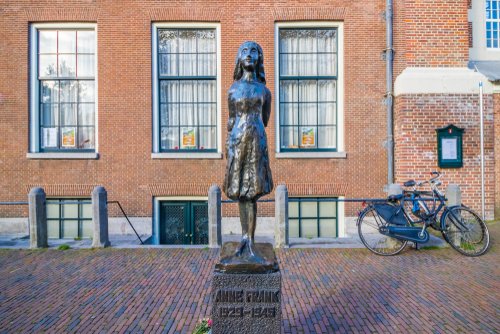Belgium, (Brussels Morning Newspaper) The Diary of Anne Frank has become the most read diary of all time, selling more than 36 million copies, in over 70 languages. Her words share the experiences she and her family had as they hid from the Nazis during World War II.
In 1945, at the age of 15, she died in a Nazi concentration camp, after two years of hiding in a secret annexe. Her father, was the only survivor of her family, and it was him who fulfilled Anne`s wishes in publishing the diary.
But how was she, and the other seven people, discovered after two years of hiding?
A new investigative team, that includes historians, specialists and an ex-FBI agent believe the most likely person that betrayed the Frank family was Arnold van den Bergh, a Jewish businessman. The reason for the treachery is thought to be the protection of his own family.
In an interview with CBS 60 minutes, former FBI agent Vince Pankoke said “When van den Bergh lost all his series of protections exempting him from having to go to the camps, he had to provide something valuable to the Nazis that he’s had contact with to let him and his wife at that time stay safe“.
Over the course of six years, the sleuths relied on modern methods to solve the “cold case”. Through the creation of computer algorithms connections between known people of the time were made quickly.
Suspicion into Van den Bergh began when it was discovered that he was not sent to a concentration camp, unlike other representatives of the Jewish Council, in which he was a member until it was abolished in 1943.
Instead, of his fate being sealed at a concentration camp, he spent the remainder of his life, he died in 1950, living in Amsterdam. He may also have been a mole, as Nazis were receiving information from a Jewish Council member.
Further evidence that suggests he was the deceiver, is a copy of a nameless letter sent to Anne´s father, Otto Frank, which clearly states Arnold van den Bergh as his betrayer.
Although the Anne Frank Museum wasn`t involved in the “impressive” investigation, Executive Director, Ronald Leopold, commented that it had “generated important new information and a fascinating hypothesis that merits further research“.




